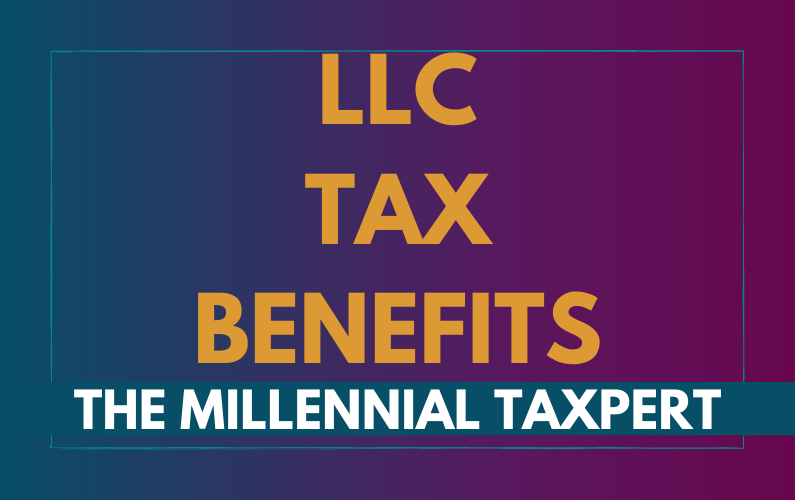Tax Benefits of Forming an LLC
Jun 13, 2023 By Susan Kelly
Are you an independent contractor or business owner? Have you considered forming a Limited Liability Company (LLC)? An LLC offers several benefits that can help protect your assets and give you greater financial security.
One of the most appealing advantages is the tax benefit LLCs provide. Understanding these tax benefits can help ensure your business takes advantage of all available deductions, reducing taxable income.
This blog post'll discuss how an LLC may offer significant tax savings for those who take the leap and form one. Keep reading to learn more!
Understand the Advantages of Forming an LLC
An LLC is a business structure that combines pass-through taxation with the limited liability of a corporation. This means that owners are not personally liable for debts and obligations incurred by their company.
Furthermore, LLCs can be managed in one of two ways: member-managed or manager-managed. Member-managed LLCs require all members to take part in decision-making, while manager-managed LLCs allow for one or more members to be appointed as the managing company responsible for making decisions.
Explore the Tax Benefits of Being an LLC
When you form an LLC, your business is treated as its entity for tax purposes. This means that the LLC itself will pay taxes on business income. This may help protect you from personal liability for the company's debts and obligations, including taxes.
1. Pass-Through Taxation: One of the most significant tax advantages of LLCs is that they can access what's known as pass-through taxation. This means the business profits are "passed through" to its owners, who then report them on their tax returns and pay taxes according to their income tax rates.
This differs from corporations, which are taxed twice - once at the corporate level and again as dividends on the owners' returns.
2. Self-Employment Tax: LLC members do not have to pay self-employment taxes like those who file taxes as sole proprietors or partners.
This tax is based on a percentage of your business profits and is paid by the owner or partner of the business. By forming an LLC, you can avoid paying this additional tax.
3. Deductions: Another benefit of LLCs is that they can claim deductions for certain expenses related to their businesses, such as employee salaries and rent. These deductions can lower your overall taxable income and, in some cases, even reduce it to zero.
4. Other Benefits: There are other benefits to forming an LLC. For example, you can protect your assets from creditors by forming an LLC since the business will be seen as a separate entity legally.
This can help protect your family's assets in a legal dispute or other financial issue.
Consider the Cost of Forming an LLC
When forming an LLC, there are certain fees associated with the process. These can include registration fees with your state's Secretary of State office, yearly filing costs to keep the LLC active, and attorney fees to help ensure that everything is properly filed.
However, these costs pale compared to the potential tax savings that may arise from forming an LLC.
One of the most significant tax benefits that LLCs provide is "pass-through taxation." With this form of taxation, profits, and losses pass directly to each member's tax return instead of being taxed at the corporate level.
This means that members can pay lower taxes on their income than they would if their business had been incorporated as a C-corporation.
This pass-through taxation makes LLCs especially attractive for smaller businesses and sole proprietorships, as their owners are spared from paying corporate taxes on top of personal income taxes.
Learn About Filing a Certificate of Formation
The first step in forming an LLC is to file a Certificate of Formation with the state, which registers your company and informs you of applicable business taxes.
Once filed, this document proves that your LLC is legally recognized by the state where it was formed. It's important to note that filing the Certificate of Formation does not guarantee immediate tax benefits, but it is the required first step.
Incorporating your business as an LLC protects your assets from being used to satisfy business debts and obligations. This is a major advantage that many people overlook when deciding whether or not to form an LLC.
Although there is no guarantee of success with any business venture, forming an LLC significantly reduces the risk of personal financial loss if your business fails.
Know the Difference Between State and Federal Taxes
Before taking advantage of an LLC's tax benefits, it's important to understand the difference between state and federal taxes. Generally speaking, LLCs are subject to self-employment tax at the state level but do not pay income tax at the federal level.
This is because LLCs are considered "pass-through entities," meaning the income from the business is passed through to the owners and taxed as personal income instead of corporate income.
Take Advantage of Deductible Expenses
One of the best tax benefits available to LLCs is that you can deduct many expenses related to your business. This includes office supplies, computer equipment, vehicles used for business purposes, and more.
You'll also be able to deduct half of the self-employment tax (up to $25,000) on your federal tax returns. This is a great way to reduce your taxable income and get back money from the government.
Choose Your Tax Year Wisely
You'll be asked to choose a tax year when forming an LLC. Your business will use this period (usually 12 months) to report its income and expenses for federal income tax purposes.
It's important to carefully consider this decision because it could have significant implications for your taxes. For example, if you choose a shorter tax year, your business may be liable for more taxes than if you had chosen a longer one.
By taking advantage of the tax benefits associated with an LLC, you can save yourself and your business thousands of dollars in taxes each year.
With careful planning and proper record-keeping, you can maximize your deductions and take full advantage of the tax benefits of owning an LLC.
FAQs
How does an LLC avoid double taxation?
An LLC avoids double taxation by using a pass-through entity structure. This means that all income and expenses are passed through to the owners rather than taxed at the corporate level.
As such, business owners can claim losses on their personal tax returns and only pay taxes once—on their returns.
What deductions can an LLC take?
An LLC can claim deductions for all ordinary and necessary business expenses, such as rent, salaries, equipment, insurance, travel, advertising, etc. It can also deduct any losses or other costs associated with the company's operation.
Are there other tax advantages to forming an LLC?
Yes! Forming an LLC can also help you save money on self-employment taxes. Self-employment taxes are Social Security and Medicare taxes that business owners must pay on their income.
When you form an LLC, however, your business income is not considered to be self-employment income, thus reducing the amount of tax you owe.
Conclusion
Overall, forming an LLC offers several tax benefits that can help you reduce your taxable income. By understanding how LLCs offer tax savings, you can ensure that your business takes full advantage of all available deductions and exemptions.
This can be especially beneficial for independent contractors and small business owners needing access to the same tax breaks. With an LLC, you can be assured that your business will be better protected and more financially secure.








